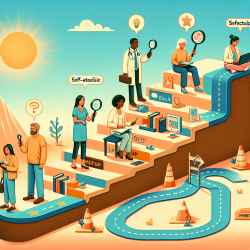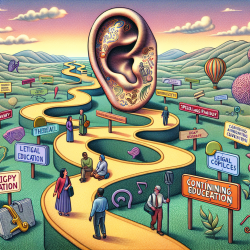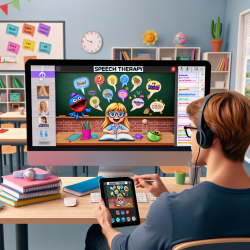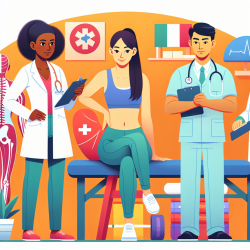As a Special Education Director with years of experience in the field, I've witnessed firsthand the transformative power of speech-language pathology (SLP) in the lives of countless students. The shift towards online therapy has opened up new vistas of opportunities, not just for students, but for SLPs striving towards self-actualization in their careers. In this evolving landscape, creating innovative tools for online therapy is not just an option; it's a necessity for those seeking to make a profound impact.
The essence of self-actualization in the context of speech-language pathology lies in the relentless pursuit of personal and professional growth. It's about harnessing one's full potential to foster communication and connection, empowering students to reach their own milestones. For SLPs working in schools, the journey towards this pinnacle of Maslow's hierarchy is paved with challenges, but it's also brimming with opportunities—especially when it comes to online therapy jobs.
Embracing the Digital Revolution
The transition to online therapy has been a game-changer, offering flexibility and a broader reach. However, it also demands a shift in how we approach therapy. Creating tools tailored for the digital realm requires creativity, technological savvy, and a deep understanding of our students' needs. This is where the journey towards self-actualization intersects with the practical aspects of our work.
Creating Tools for Online Success
Innovative tools for online therapy are not just about leveraging technology; they're about reimagining how we connect with and engage our students. From interactive games that make learning fun to video resources that can be accessed anytime, the possibilities are endless. These tools not only enhance the therapy experience but also empower parents to be more involved in their child's learning journey.
Moreover, the Individualized Education Program (IEP) process in the online setting can be streamlined with the right tools. Digital IEP platforms allow for more efficient collaboration between therapists, teachers, and parents, ensuring that every child's plan is tailored to their unique needs and goals.
The Role of Self-Reflection
Creating tools for online therapy also involves a significant amount of self-reflection. It's about asking ourselves how we can be better, do better, and innovate more effectively. This introspection is a crucial step towards self-actualization, as it pushes us to continually evolve and adapt in our roles.
Overcoming Challenges
Of course, the path to creating impactful online therapy tools is not without its obstacles. Technical issues, resistance to change, and the need for ongoing professional development are just a few of the challenges we face. Yet, it's through overcoming these hurdles that we grow both personally and professionally, inching closer to our ultimate goal of self-actualization.
A Collaborative Effort
Finally, it's important to remember that creating tools for online therapy is not a solitary endeavor. It's a collaborative effort that benefits from the collective wisdom of SLPs, educators, parents, and the students themselves. By working together, we can create an inclusive, supportive, and dynamic online therapy environment that not only meets the needs of our students but also propels us towards our fullest potential as therapists.
In conclusion, the journey towards self-actualization for speech-language pathologists working in schools is both challenging and rewarding. By embracing the opportunities presented by online therapy and committing to the creation of innovative tools, we can inspire not only ourselves but also the next generation of communicators. Let us embark on this journey with determination, creativity, and an unwavering commitment to excellence.










